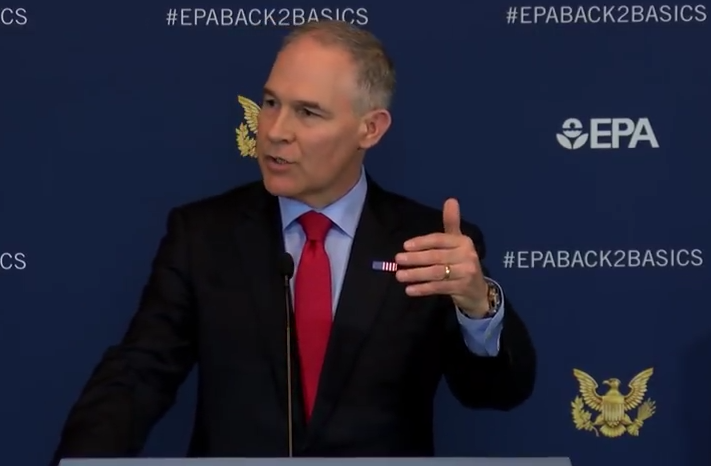By Natalia Castro
The Environmental Protection Agency (EPA) has been plagued with inefficiency for years. The Partnership for Public Service has ranked the EPA 22 out of 23 ineffective leadership for a mid-sized agency for the last two years in a row. The Resource for the Future, an environmental, energy, and natural resource research institution, found that the average EPA permit process takes 420 days to complete.
But now, under Administrator Scott Pruitt, the EPA is committed to fixing itself. Pruitt is taking the necessary steps to increase accountability and set clear guidelines for action. The EPA has already established over 400 metrics across all EPA programs and regional office that track monthly goals, created standardized methods of communicating monthly targets, integrated monthly business reviews for all senior leaders to review their office’s performance, and initiated new employee training.
Pruitt is also looking to hold the career employees at the agency accountable. The newly created Office of Continuous Improvement (OCI) will ensure the policies that work in some areas of the department are implemented across the agency, and hopefully, act as a model for other agencies.
In a May 14, 2018 press briefing, EPA Chief Operating Officer Henry Darwin explains, the purpose of the new office is to coordinate the agency-wide implementation of the new EPA Lean Management System (ELMS).
The American Society of Mechanical Engineers noted in March 2016 ELMS has its roots in the automotive industry, Toyota created the Lean Management system to eliminate waste from manufacturing operations. Today, engineers and manufacturing leaders use Lean Management to create clear standards of quality and expedite timelines.
The OCI will universalize these ELMS standards across the agency and oversee their success with the goal of instituting full ELMS in 80 percent of agency units by September 30, 2020 and will require programs within the EPA to submit timelines for action and engage in monthly reviews of both regional and national programs to ensure deadlines are being kept.
While this might seem like an ordinary accountability standard in the private sector, Pruitt explained in the press briefing that the EPA has failed to conduct these program reviews for years.
Pruitt further explained, until this year, the EPA did not track the time it took to complete permit requests, did not track legal deadlines set by Congress, did not measure correction and compliance rates following known violations of agency guidelines, and did not measure the number of drinking water systems out of compliance with EPA rules.
Essentially, EPA management has had little to no accountability for when projects must finish or how actions must be corrected when projects are completed inadequately. Pruitt notes, this caused vast inconsistencies between regional branches, created a disengaged workforce, and fueled mismanagement.
The Office of Continuous Improvement will give the EPA the opportunity to rebuild their reputation of waste and inefficiency, and if successful, can be used across the federal government to improve agency efficiency. Our civil service employees must be held accountable for their work the way employees in the private sector are, and what better way to do that than implement a system that has worked for private manufacturers?
Natalia Castro is a contributing editor at Americans for Limited Government.







